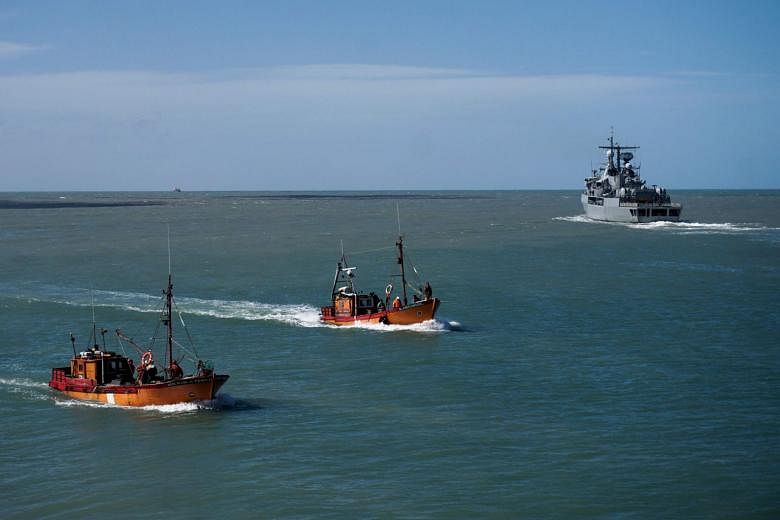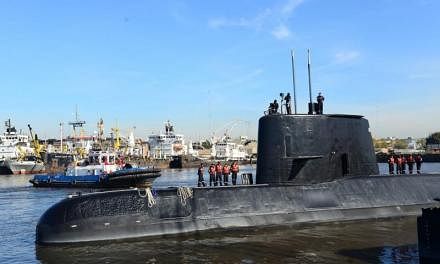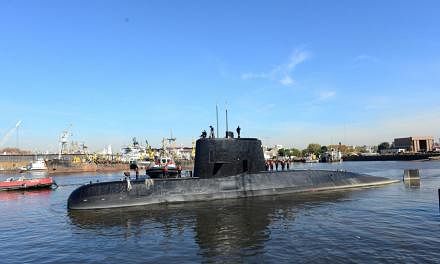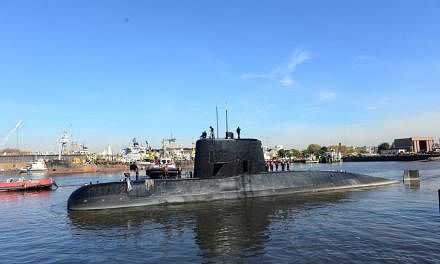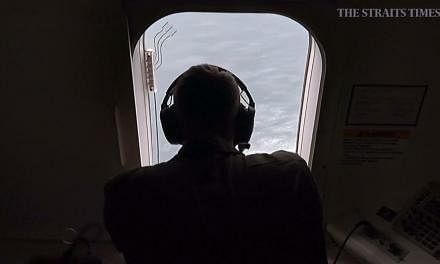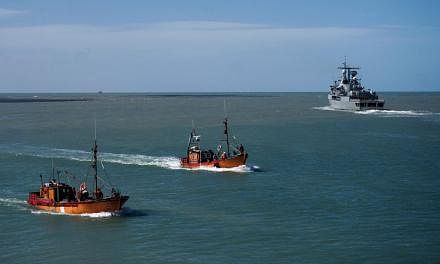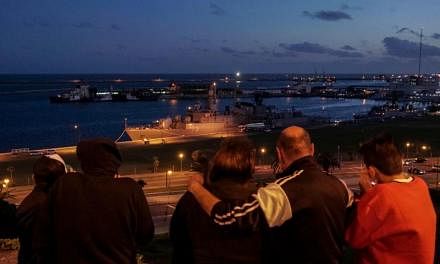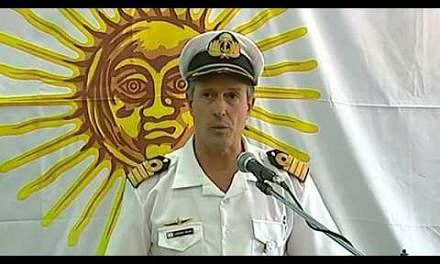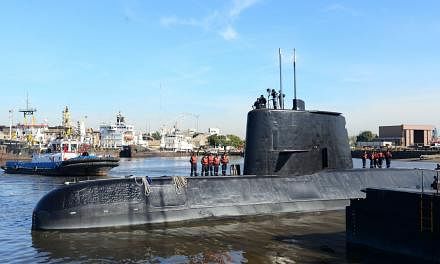MAR DEL PLATA, ARGENTINA/BUENOS AIRES (REUTERS) - The search for an Argentine navy submarine missing in the South Atlantic for one week reached a "critical phase" on Wednesday (Nov 22) as the 44 crew on board could be running low on oxygen, a navy spokesman said.
Dozens of planes and boats were searching for the ARA San Juan, a mission that has plunged relatives of the sailors into an anguished wait for news and transfixed the South American country of 44 million people.
If the German-built submarine, in service for more than three decades, had sunk or was otherwise unable to rise to the surface since it gave its last location on Nov 15, it would be using up the last of its seven-day oxygen supply.
"We are in the critical phase...particularly with respect to oxygen," navy spokesman Enrique Balbi told reporters. "There has been no contact with anything that could be the San Juan submarine."
Favourable weather meant search boats could cover a greater area after being hampered by strong winds and high waves for much of the past few days, although poor weather was expected to return on Thursday, Balbi said.
Around 30 boats and planes and 4,000 people from Argentina, the United States, Britain, Chile and Brazil have joined the search for the submarine, which last transmitted its location about 480km from the coast.

Planes have covered some 500,000 square km of the ocean surface, but much of the area has not yet been scoured by the boats.
As part of the search operation on Wednesday, a P-8 Poseidon airplane from the US Navy left the Comandante Espora base some 650km south of Buenos Aires to try to detect the submarine through "sonobuoys," or buoys equipped with a sonar system that are dropped from aircraft, usually during anti-submarine warfare.
In recent days several possible signals, including sounds and flares, that have been detected have turned out to be false alarms. Overnight, a British ship reported observing three orange and white flares, but they did not come from the vessel, Balbi said.
Relatives of the crew members have been gathered at a naval base in Mar del Plata, where the search is being coordinated.
"We came today because we had hope that they had returned,"Elena Alfaro, the sister of crew member and radar expert Cristian Ibanez, told Reuters, in tears. "It is incomprehensible that so much time has passed. We are in pain."
'LOS 44'
Argentines have been gripped by the search, with local newspapers placing photographs on their front pages of crew members' relatives praying.
The case has dominated discussion on social media in Argentina, with the hashtags "Los 44" (The 44) and (navy spokesman) "Enrique Balbi" becoming trending topics on Twitter. It has drawn comparisons to the most recent major rescue operation in the region, when 33 miners in northern Chile were rescued in 2010 after 69 days trapped underground.
The submarine was en route from Ushuaia, the southernmost city in the world, to the coastal city of Mar del Plata, some 400km south of Buenos Aires, when it reported an electrical malfunction shortly before disappearing last week. The submarine was launched in 1983 and underwent maintenance in 2008 in Argentina.
Military leaders briefed President Mauricio Macri on the search operation on Tuesday. The first signs of frustration with the government over the missing submarine surfaced late Tuesday, when video of a tense meeting between Macri and family members was published online by the Perfil newspaper.
"It is practically suicide to send them on something that is so old," the wife of one of the sailors said.
Argentina's armed forces have worked with old equipment and a lack of investment in the decades since the bloody military dictatorship of 1976-1983. The country's military was defeated by British forces in a brief 1982 war over the disputed Falkland Islands, known as Las Malvinas in Argentina.
In Mar del Plata, locals hung sky blue and white Argentine flags, with inscribed messages like "ARA San Juan, the world is with you" on the chain link fence outside the naval base.
"We are desperate," resident Leandro Gamarra said outside the base.
"We want them to appear."
